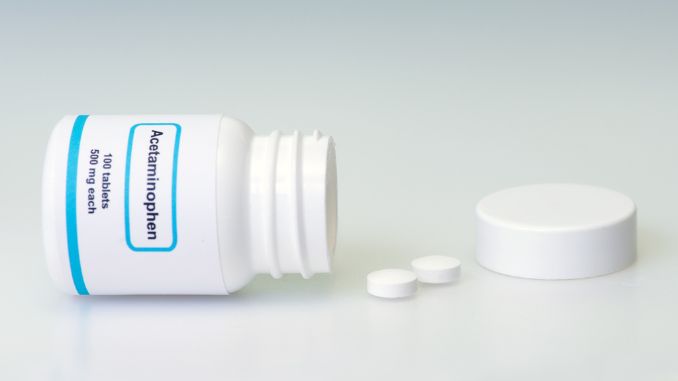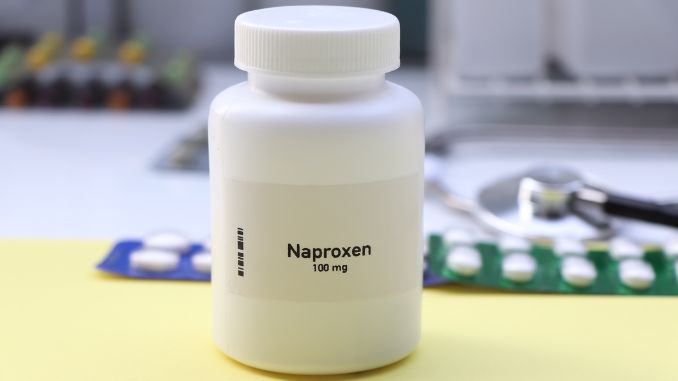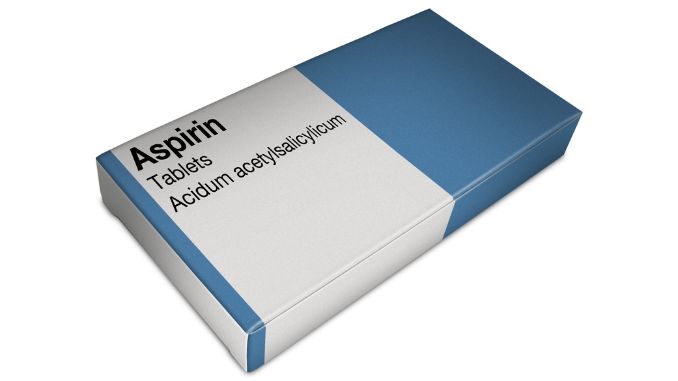Migraines are debilitating, causing intense pain, nausea, and sensitivity to light and sound, significantly disrupting daily life. Fast migraine pain relief is essential for improving quality of life and maintaining productivity. Over-the-counter (OTC) migraine medications are crucial in pain management, offering quick and effective migraine relief.
This blog post identifies the best OTC migraine medicines, including ibuprofen, acetaminophen, naproxen, aspirin, and combination medications. We will also discuss safe usage, potential side effects, and lifestyle changes to enhance treatment effectiveness. You’ll understand the top OTC options for achieving rapid migraine relief by the end.
Understanding Migraines

Migraine headaches [¹] typically present as severe, pulsating pain, usually on one side of the head. Common symptoms include nausea, vomiting, and heightened sensitivity to light and sound. These symptoms can last hours or even days, severely impacting daily activities.
A. Typical Migraine Triggers
Migraine triggers vary but often include:
- Stress.
- Certain foods and drinks.
- Hormonal changes.
- Lack of sleep.
- Environmental influences, including harsh lights and powerful scents.
Identifying and avoiding these triggers is crucial for effective migraine management and prevention
B. The Impact of Migraines on Daily Life
Migraines can significantly disrupt daily life, affecting work, social activities, and overall quality of life. Effective and fast migraine relief is essential to minimize these disruptions and improve daily functioning. Over the counter migraine medicine is vital in providing quick relief and helping individuals manage their symptoms effectively.
What Are Over-the-counter (OTC) Migraine Medicines?

Over-the-counter (OTC) migraine medicines are available without a prescription and help alleviate migraine symptoms. These pain-relieving medications are designed for pain management and are easily accessible at pharmacies and grocery stores. Common over the counter migraine medicine include ibuprofen, acetaminophen, naproxen, and aspirin, which are effective and the best medicine for migraine.
1. Differences Between OTC and Prescription Medications
OTC medications [²] differ from prescription medications in several ways. OTC drugs are generally suitable for mild to moderate pain relief and are considered safe for most people when used as directed.
Prescription medications, on the other hand, are often required for more severe or chronic migraines and may include stronger painkillers or specialized treatments like triptans. Prescription drugs are tailored to individual needs and often require a healthcare provider’s evaluation and approval.
2. Why OTC Options are a Popular Choice for Migraine Sufferers?
OTC options are a popular choice for migraine sufferers due to their convenience, affordability, and effectiveness in managing symptoms. These non-prescription medications provide fast relief, allowing individuals to resume their daily activities quickly.
Additionally, OT migraine medicines are widely available, making them an accessible first line of defense against migraines. Their ease of use and proven efficacy in treating headache pain contribute to their popularity among those seeking immediate and reliable migraine relief.
Top Over-the-Counter Migraine Medicines for Fast Migraine Pain Relief
1. Ibuprofen

Ibuprofen is a nonsteroidal anti-inflammatory drug (NSAID) that reduces inflammation and blocks pain signals in the brain, providing effective headache relief.
a. Recommended Dosage for Fast Relief
For adults, the typical dosage is 200-400 mg every 4-6 hours as needed. It's important not to exceed 1200 mg in 24 hours without consulting a healthcare provider.
b. Potential Side Effects to Be Aware Of
Common side effects include upset stomach, nausea, and dizziness. Prolonged use can result in more serious issues like gastrointestinal bleeding and kidney damage. Always follow the dosage instructions to minimize risks.
2. Acetaminophen

Acetaminophen helps lower pain and fever by inhibiting the production of certain chemicals in the brain called prostaglandins. It’s particularly effective for those who cannot tolerate NSAIDs.
a. Dosage Guidelines
Adults can take 500-1000 mg every 4-6 hours as needed but should not exceed 4000 mg in 24 hours to avoid liver damage.
b. Common Side Effects and Precautions
Acetaminophen is generally well-tolerated but has potential side effects, including allergic reactions and skin rashes. It’s crucial to avoid excessive alcohol consumption while taking Acetaminophen, as this can increase the risk of liver damage.
3. Naproxen

Naproxen is another NSAID that relieves long-lasting pain by reducing inflammation and signaling pain. It's effective for treating acute migraine attacks.
a. Appropriate Dosage for Quick Results
The recommended dosage for adults is 220-440 mg initially, followed by 220 mg every 8-12 hours as needed. Do not exceed 660 mg in 24 hours without medical advice.
b. Possible Side Effects and Warnings
Common side effects are stomach problems like heartburn, feeling sick, and stomach pain. Using it for a long time might raise the chance of having a heart attack or stroke.
It's important to follow the instructions on how much to take and talk to a doctor if you have a history of heart or stomach issues.
4. Aspirin

Aspirin works by inhibiting enzymes involved in the inflammatory process, thus reducing pain and inflammation. It’s effective for relieving mild to moderate migraine pain.
a. Dosage Information for Quick Effectiveness
Adults can take 325-650 mg every 4-6 hours as needed. The maximum recommended dosage is 4000 mg in 24 hours.
b. Side Effects and Important Warnings
Side effects may consist of an increased risk of bleeding, heartburn, and stomach upset. Aspirin should be used cautiously by individuals with a history of ulcers or bleeding disorders. It’s also not recommended for children due to the risk of Reye’s syndrome.
By understanding the mechanisms, dosages, and potential side effects of these top over the counter migraine medicine, sufferers can make informed decisions to achieve fast and effective migraine relief.
Combination Medications for Enhanced Relief
Taking a combination of OTC to relieve migraine pain involves formulations that include multiple active ingredients.
A. Benefits of Using Combination Medications for Faster Relief
The primary benefit of using combination medications is the enhanced effectiveness in reducing migraine symptoms quickly. Caffeine, included in these formulations, improves the absorption of pain relievers, allowing for faster relief.
This multi-ingredient approach targets different pain pathways, providing more comprehensive pain management. Additionally, combination medications can reduce the need for multiple individual drugs, simplifying treatment and improving adherence to the medication regimen.
B. Common Combinations and Their Ingredients
- Excedrin Migraine: This powerful combination combines 250 mg of aspirin, 65 mg of caffeine, and 250 mg of acetaminophen to provide quick relief from migraine pain and associated symptoms.
- Advil Migraine: Contains 200 mg of ibuprofen, an NSAID, which helps reduce inflammation and alleviate pain swiftly.
- Aleve-D Sinus & Headache: This medication includes 220 mg of naproxen (an NSAID) and 10 mg of phenylephrine (a nasal decongestant), which targets migraine pain and sinus congestion.
By leveraging the strengths of each ingredient, combination OTC migraine medications offer a robust solution for those seeking rapid and effective relief from migraines. Understanding these options can help sufferers choose the best treatment to manage their symptoms efficiently.
Natural Remedies and Complementary Lifestyle Changes
Natural remedies can effectively complement over-the-counter (OTC) migraine medications, enhancing overall pain management and providing holistic relief. These remedies include herbal supplements, essential oils, and lifestyle adjustments that help mitigate migraine symptoms and prevent future attacks.
A. Importance of Staying Hydrated for Fast Relief

Staying hydrated is important for preventing and alleviating migraines. Dehydration can trigger headaches and exacerbate migraine symptoms. Drinking adequate water all day long helps maintain optimal body function and reduces the likelihood of headache onset.
B. Dietary Changes That May Help
Certain dietary changes can significantly impact migraine frequency and severity. Avoiding common dietary triggers such as caffeine, alcohol, processed foods, and artificial sweeteners can reduce migraine episodes.
Consuming a balanced diet with lots of whole grains, fruits, vegetables, and lean proteins helps you stay healthy and can reduce migraine attacks.
C. Stress Management Techniques to Prevent and Alleviate Migraines

Stress is a well-known trigger for migraines. Engaging in mindfulness meditation, progressive muscle relaxation, deep breathing exercises, and yoga can help reduce stress levels and prevent migraines. Regular practice of these techniques promotes relaxation and overall well-being.
D. The Role of Sleep Quality in Migraine Management
Quality sleep is essential for effective migraine management. Poor sleep can trigger migraines and worsen existing symptoms. Setting a regular bedtime and following good sleep habits can help create a restful sleep environment, improve sleep quality, and reduce migraines.
E. Benefits of Regular Exercise

Regular exercise is beneficial and can help prevent migraines. Physical activity releases endorphins and natural painkillers and helps reduce stress levels. Doing simple activities like walking, cycling, or swimming for at least 30 minutes on most days of the week can make your body and mind healthier, which may lead to fewer migraines.
By incorporating these natural remedies and complementary lifestyle changes, individuals can enhance the effectiveness of OTC migraine medications and achieve more comprehensive and sustained relief from migraine symptoms.
Safe Usage and Important Precautions

Adhering to the recommended dosage for OTC migraine medications is crucial for safety and effectiveness. Overusing these medications can lead to serious health issues, including medication overuse, headache, gastrointestinal problems, liver damage, and increased risk of cardiovascular events.
Always follow the dosage instructions provided on the packaging or by your doctor to ensure safe use.
1. Recognizing Potential Drug Interactions
OTC migraine medications can interact with other drugs, leading to adverse effects or reduced effectiveness. It's important to be aware of potential drug interactions, especially if you are taking other medications such as blood thinners, antidepressants, or other pain relievers.
Always consult with a healthcare professional before combining over the counter migraine medicine with other treatments.
2. When to Avoid Certain OTC Medications?
Certain individuals should avoid specific OTC migraine medications. For example, people with a history of stomach ulcers or gastrointestinal bleeding should avoid NSAIDs like ibuprofen and naproxen.
Those with liver issues should be cautious with acetaminophen. Understanding your medical history and any pre-existing conditions that may contraindicate using certain OTC drugs is essential.
3. Understanding and Managing Possible Side Effects
Potential side effects awareness is key to managing your health while using OTC migraine medications. More serious side effects can include gastrointestinal bleeding, liver damage, and kidney problems. If you experience persistent or severe side effects, seek medical attention immediately.
4. What to Do in Case of an Overdose?
An overdose of OTC migraine medications can be life-threatening and requires immediate medical attention. Symptoms of an overdose can include vomiting, stomach pain, dizziness, severe nausea, and confusion.
If an overdose is suspected, contact emergency services or go to the nearest emergency room. It's important to keep medications out of reach of children and to use them responsibly to prevent accidental overdose.
You can use over the counter migraine medicine effectively and safely by understanding the importance of safe usage, recognizing potential drug interactions, knowing when to avoid certain medications, and managing possible side effects. Always consult a healthcare professional with any concerns or questions about your medication regimen.
Comparing OTC and Prescription Migraine Medications

A. When Prescription Medications Might Be Necessary for Fast Relief?
While over-the-counter (OTC) migraine medications can be effective for many people, there are instances when prescription medications are necessary for fast relief. Like for those who experience severe symptoms that do not respond to OTC treatments or those who have frequent migraine attacks.
Prescription options include triptans, ergotamines, and certain preventive medications that target migraine pathways more specifically and effectively than OTC options.
B. Pros and Cons of OTC Versus Prescription Options
1. OTC Medications:
Pros:
- Easily accessible without a prescription
- Cost-effective
- Effective for mild to moderate migraine relief
- Fewer side effects and lower risk of dependency
Cons:
- It may not be effective for severe or chronic migraines
- Potential for overuse and medication overuse headaches
- Limited in targeting specific migraine pathways
2. Prescription Medications:
Pros:
- More effective for severe or chronic migraines
- Target-specific migraine mechanisms
- A broader range of options, including preventive treatments
- Can provide faster and more sustained relief
Cons:
- Requires a prescription and medical consultation
- More expensive than OTC options
- Potential for more significant side effects
- Higher risk of dependency on certain medications
Consulting Healthcare Providers for Chronic or Severe Migraines

For individuals with chronic or severe migraines, consulting a healthcare provider is essential. A healthcare professional can provide a comprehensive evaluation, diagnose underlying causes, and recommend an appropriate treatment plan.
This may include prescription medications, lifestyle changes, and preventive strategies tailored to the individual's needs. Regular consultations with a healthcare provider ensure that migraine management is effective and safe, reducing the risk of complications and improving quality of life.
By understanding when prescription medications are necessary, weighing the pros and cons of OTC and prescription options, and consulting healthcare providers for chronic or severe migraines, sufferers can make informed decisions about their migraine treatment and achieve better outcomes.
Conclusion
Ibuprofen, acetaminophen, and aspirin are effective over-the-counter (OTC) medications for quick migraine relief, each tailored to specific needs. While these over the counter migraine medicine can provide fast alleviation of symptoms, they are not universally suitable for everyone. It's crucial to consult with a healthcare provider to choose the most appropriate medication based on your health profile and specific migraine triggers.
Additionally, integrating these medications with lifestyle changes such as stress management, regular exercise, and dietary adjustments can significantly enhance migraine management. This comprehensive approach not only optimizes the medication's effectiveness but also helps reduce the frequency and severity of migraines.
Please feel free to leave comments and questions below. Engaging in discussions can help us all learn more about managing migraines effectively and discover new strategies for relief.
By following this outline, the blog post will provide comprehensive and actionable information on the best over the counter migraine medicine for fast relief, helping readers find effective solutions to manage their migraines.
Discover the best over the counter migraine medicine for fast relief! Check out our 10 Gentle Yoga Poses for Migraine Relief to complement your care. Take control of your migraines today!








